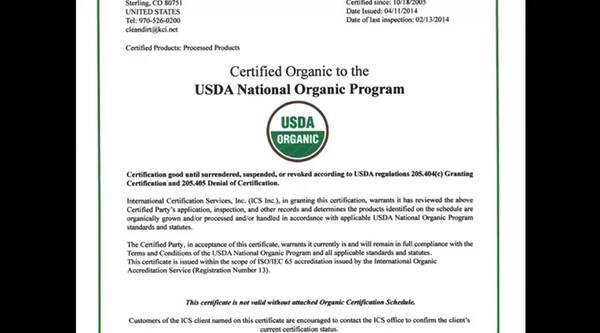Unlocking the Benefits of USDA Organic Certification: Why USDA B Matters for Your Health and Environment
Guide or Summary:Understanding USDA B CertificationThe Importance of Organic FarmingConsumer Trust and TransparencyHealth Benefits of USDA B Certified Produ……
Guide or Summary:
- Understanding USDA B Certification
- The Importance of Organic Farming
- Consumer Trust and Transparency
- Health Benefits of USDA B Certified Products
- Supporting Local Economies and Farmers
- Conclusion: The Future of USDA B and Organic Certification
In recent years, the demand for organic products has surged as consumers become more health-conscious and environmentally aware. One of the key players in this movement is the USDA, or the United States Department of Agriculture. Among its various certifications, the USDA B certification stands out as a crucial indicator of organic integrity. This article will explore the significance of USDA B, its impact on consumer choices, and how it contributes to sustainable agriculture.
Understanding USDA B Certification
The USDA B certification is a designation that indicates a product meets the stringent standards set by the USDA for organic farming and processing. This certification covers a wide range of products, including fruits, vegetables, grains, dairy, and meat. To earn the USDA B label, producers must adhere to specific guidelines that prohibit the use of synthetic fertilizers, pesticides, and genetically modified organisms (GMOs). Instead, they rely on natural methods to cultivate crops and raise animals, promoting a healthier ecosystem.

The Importance of Organic Farming
Organic farming plays a vital role in safeguarding the environment. By avoiding synthetic chemicals, organic farmers help maintain soil health, protect water quality, and promote biodiversity. These practices contribute to a more sustainable agricultural system that can withstand climate change and support future generations. Furthermore, organic farming often results in higher nutrient levels in produce, making USDA B certified products not only better for the planet but also for consumers' health.
Consumer Trust and Transparency
One of the most significant advantages of USDA B certification is the trust it instills in consumers. When shoppers see the USDA B label on a product, they can be confident that it has been produced according to rigorous standards. This transparency is essential in an era where misinformation about food production is rampant. Consumers are increasingly seeking out products that align with their values, and the USDA B certification provides a clear, reliable way to identify organic options.

Health Benefits of USDA B Certified Products
Choosing USDA B certified products can lead to numerous health benefits. Studies have shown that organic fruits and vegetables often contain higher levels of antioxidants and essential nutrients compared to their conventionally grown counterparts. Additionally, organic dairy and meat products are typically free from antibiotics and growth hormones, reducing the risk of antibiotic resistance and ensuring a cleaner food supply. By opting for USDA B certified items, consumers can make healthier choices for themselves and their families.
Supporting Local Economies and Farmers
Purchasing USDA B certified products also supports local economies and small-scale farmers. Many organic farms are family-owned and operated, and buying their products helps sustain their livelihoods. This support fosters a sense of community and encourages the growth of sustainable practices within the agricultural sector. By choosing USDA B certified options, consumers can contribute to a more equitable food system that prioritizes ethical farming practices.

Conclusion: The Future of USDA B and Organic Certification
As the organic market continues to grow, the importance of USDA B certification will only increase. Consumers are becoming more discerning about their food choices, and the demand for transparency and sustainability is at an all-time high. By understanding the significance of USDA B certification, individuals can make informed decisions that benefit their health, the environment, and the economy. Embracing USDA B certified products is not just a trend; it is a step towards a healthier and more sustainable future for all.